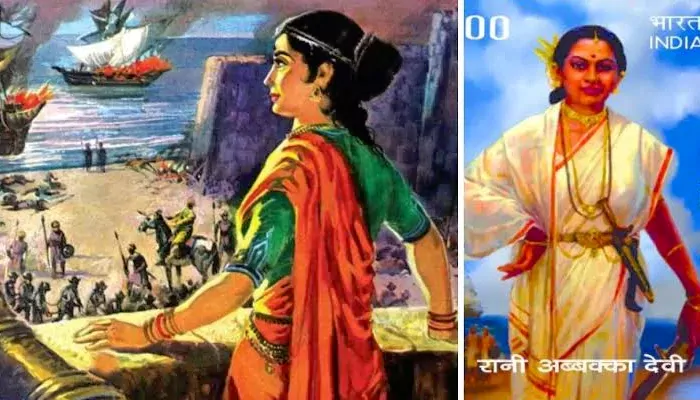
Leading ladies with swords: A tale of courage you didn’t learn in school!
Imagine this: a queen who didn't just sit on a throne wearing gorgeous jewellery but picked up a sword, trained women to fight, and built a huge battalion of bravehearts centuries before hashtags became the language of empowerment.
No, we’re not talking about Rani Lakshmibai—though salute to her too—but a lesser-known, almost-forgotten powerhouse: Rani Abbakka Chowta, the indomitable queen of Ullal, a fierce seafarer and strategist from coastal Karnataka.
Ever wondered that a Queen had already drawn blueprints for resistance in the 16th century, much before British colonization. In this article, we will learn about that lady, who didn't get a mention in your history textbook.
Abbakka wasn’t a typical royal. She was raised in a matrilineal Jain dynasty (yes, India had them centuries ago!), she wasn’t just trained in dance and etiquette. Her mother ensured she gets training in statecraft, horse-riding, archery, and naval warfare.
She ruled Ullal, a geopolitically crucial port city. The Portuguese, drooling over India's spice wealth, tried to bully local rulers into surrendering. But Abbakka wasn’t in the mood for it.
Instead of quietly folding hands, she struck back—with an all-women militia! Let that sink in folks. Long before gender equality became a trending topic, Abbakka turned the concept into combat reality.
You might have seen cannon fire, and guerilla tactics in movies depicting pirates. In the 16th century, Abbakka’s forces used every inch of their local knowledge to trap Portuguese ships and outsmart their generals. This wasn’t just warfare—it was strategic chess at sea.
What truly set her apart? Her inclusivity. Muslims, Hindus, and even ex-Portuguese soldiers were part of her army. She knew that unity was her real weapon.
However, she faced betrayal and got captured. But, the Portuguese couldn’t break her. She escaped, rallied again, and went down in history—well, she should have. But somehow, unfortunately, the history textbooks forgot her name.

(Statue of Queen Abbakka in Karnataka, source: Wikipedia)
Rani Abbakka’s should be portrayed on screen. Royal intrigue, politics, strategy, betrayal, naval battles, sisterhood, and a fiery spirit that refused to dim—what’s not to love?
Yet, outside of Karnataka’s folklore and a few footnotes in history books, her legacy is not shouted. While the historians laud Western women warriors, we’ve got legends tucked away like dusty heirlooms.
It’s time we polish them up and put them front and centre.
Let’s be real—before there were women’s marches or gender policy summits, there was Rani Abbakka marching into battle with her sisters-in-arms. She redefined leadership, not by imitation, but by fierce innovation. She didn’t beg. She commanded.
Every statue, every night time story, every syllabus update matters. Because reclaiming history is not just about the past—it’s about shaping the future. By telling Abbakka’s stories, we let young girls know that they’ve always had fire in their blood.
Let’s stop letting colonial hangovers and male-centric narratives gatekeep our history. Rani Abbakka’s not a ‘forgotten’ warrior. She’s a silenced one.
If this article made you think, “Why didn’t I know this?”—you’re not alone. That’s why it’s on us to bring queens like Abbakka into the limelight now. Because sometimes, the fiercest armies don’t come in massive numbers—they come in names that refuse to be erased.
So go ahead. Google her. Talk about her. Post about her. Let’s make India's history thrilling and diverse as it truly was.